Magone/iStock/GettyImages
Fruits, vegetables, grains and other foods that come from plants contain fiber, the part of a plant that you can't digest. Fiber plays an important role in your health by relieving constipation, reducing the chances of other digestive problems and improving cardiovascular health. Cooking foods that have fiber softens the fiber, but doesn't destroy it.
Effects of Cooking
Plants contain cellulose and pectin, two types of fiber. When you cook plants, the heat softens these fibers. A cooked carrot is softer than a raw carrot, which is crunchy. The longer you cook food, the more its fiber is broken down and the softer it becomes. For example, cooking lentils or beans for too long makes them mushy.
Considerations
Softening the fiber in fruits, vegetables and grains means that your body gets slightly less fiber, but this is often beneficial. For example, it's easier to chew fruits and vegetables that are firm and tender instead of crunchy. Some people, such as the elderly or people with dental problems, may not be able to eat very crunchy or stringy fruits and veggies. In addition, many foods taste better when they've been cooked. Finally, cooking may mitigate the digestive problems some people experience from eating fiber, such as bloating and gas.
Maximizing Fiber
Avoid fiber loss by cooking most fruits, vegetables and grains until they are tender and firm, not mushy. Mushy food has lost too much of its cellulose and pectin, and it's usually not as appetizing, either. However, some vegetables, such as squash, are best eaten soft. If you're cooking grains, such as quinoa or rice, don't use too much water, as pouring off extra water removes fiber and nutrients. Eat raw fruits and vegetables to get the most fiber.
Effects of pH
Don't add alkaline ingredients, such as baking soda, to dishes; alkalis turn fruits and vegetables to mush and destroy nutrients. Acids make the fibers in foods firmer, so you may need to extend the cooking time if you add vinegar, lemon juice, tomato sauce or other acidic ingredients to a dish.
Related Articles
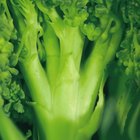
If I Puree Raw Vegetables Will That ...
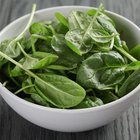
Does Fresh Spinach Cause Bloating?
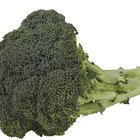
What Vegetables Have Citric Acid?

Is Wheat Grass an Alkalizing Food?

How to Make Hydrolyzed Silk Protein

The Positive Effects of Using a ...
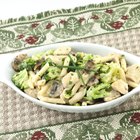
Calories in 1 Cup of Pasta Primavera

What Is Agave Syrup?
Substitutes for Oat Bran
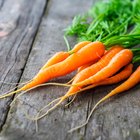
What Is the Difference Between Roughage ...

Does Benefiber Lower Cholesterol?
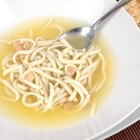
Does Canned Soup Go Bad?

Nutrition Information on Blueberries

How to Preserve Amino Acids in the ...

What Foods Provide Calcium D-Glucarate?

Best Fruit Juices to Cleanse the Colon
Is Nutritional Yeast Gluten Free?
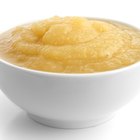
Benefiber as an Appetite Suppressant

What Is Arnel Vintage Material Fabric?

Description and Characteristics of ...
References
Writer Bio
Rebekah Richards is a professional writer with work published in the "Atlanta Journal-Constitution," "Brandeis University Law Journal" and online at tolerance.org. She graduated magna cum laude from Brandeis University with bachelor's degrees in creative writing, English/American literature and international studies. Richards earned a master's degree at Carnegie Mellon University.